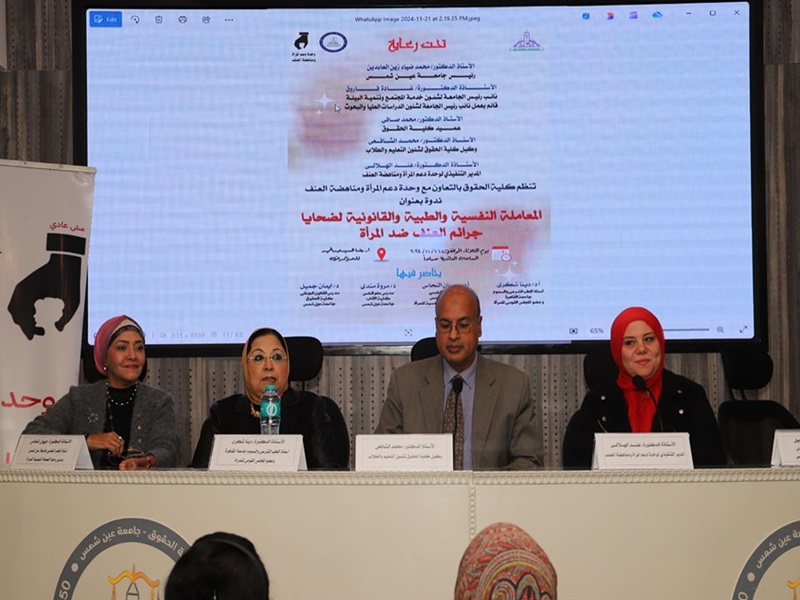The activities of "Psychological, Medical and Legal Treatment of Victims of Crimes of Violence against Women" symposium of the Women's Support and Anti-Violence Unit at the Faculty of Law
The Faculty of Law, at Ain Shams University, in cooperation with the Women's Support and Anti-Violence Unit, organized a symposium entitled "Psychological, Medical and Legal Treatment of Victims of Crimes of Violence against Women", under the auspices of Prof. Mohamed Diaa Zain El-Abedeen, President of the University, Prof. Ghada Farouk, Vice President of the University for Community Service and Environmental Development Affairs, Prof. Mohamed Safi, Dean of the Faculty of Law, and coordination of Prof. Mohamed El-Shafei, Vice Dean of the Faculty for Education and Student Affairs, Prof. Hind El-Hilali, Executive Director of the Women's Support and Anti-Violence Unit.
At the beginning of the symposium, Prof. Mohamed El Shafei, Vice Dean of the Faculty for Education and Student Affairs, welcomed all the guests and expressed his happiness with the fruitful cooperation with the Women's Support and Anti-Violence Unit through the symposia and workshops it provides to enhance community awareness of the seriousness of the phenomenon and the role of institutions in combating it and demonstrating cooperation between different specializations in supporting victims of violence and achieving justice.
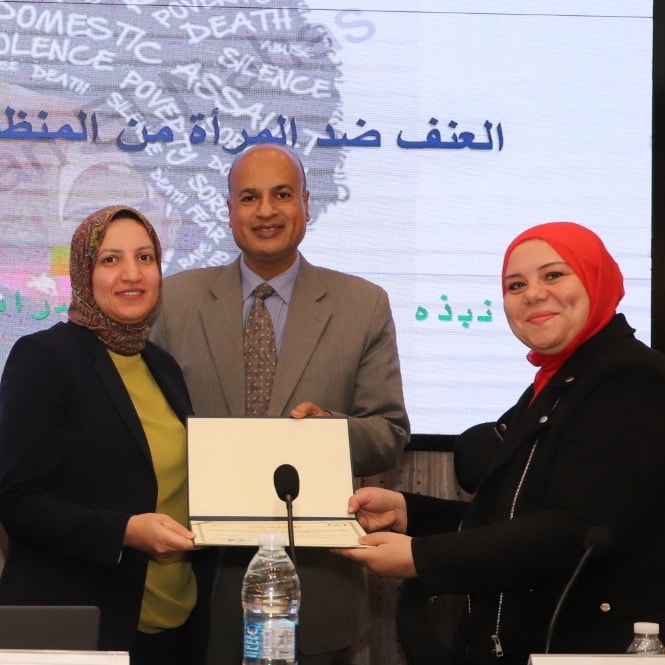 |
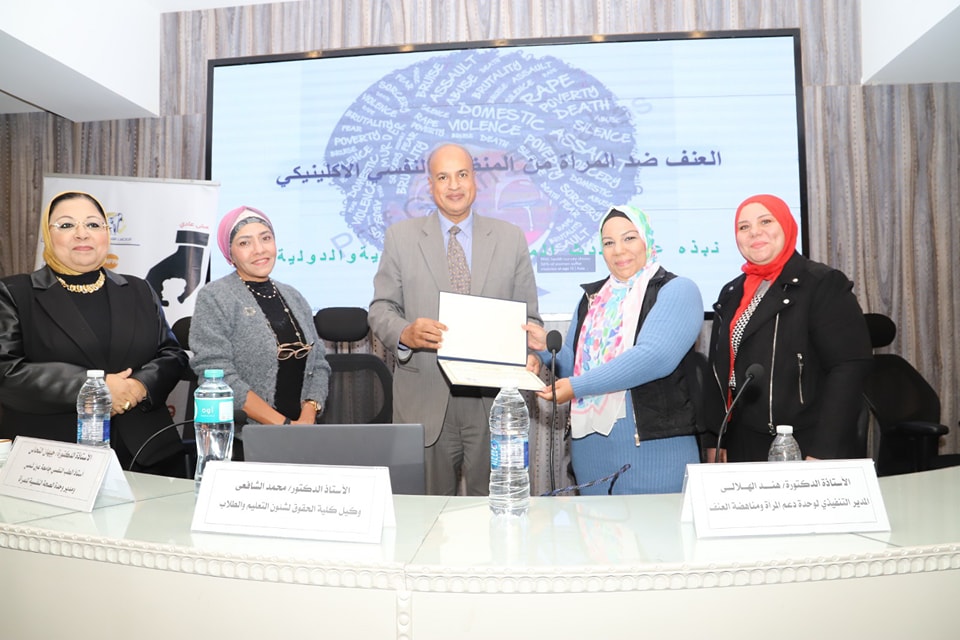 |
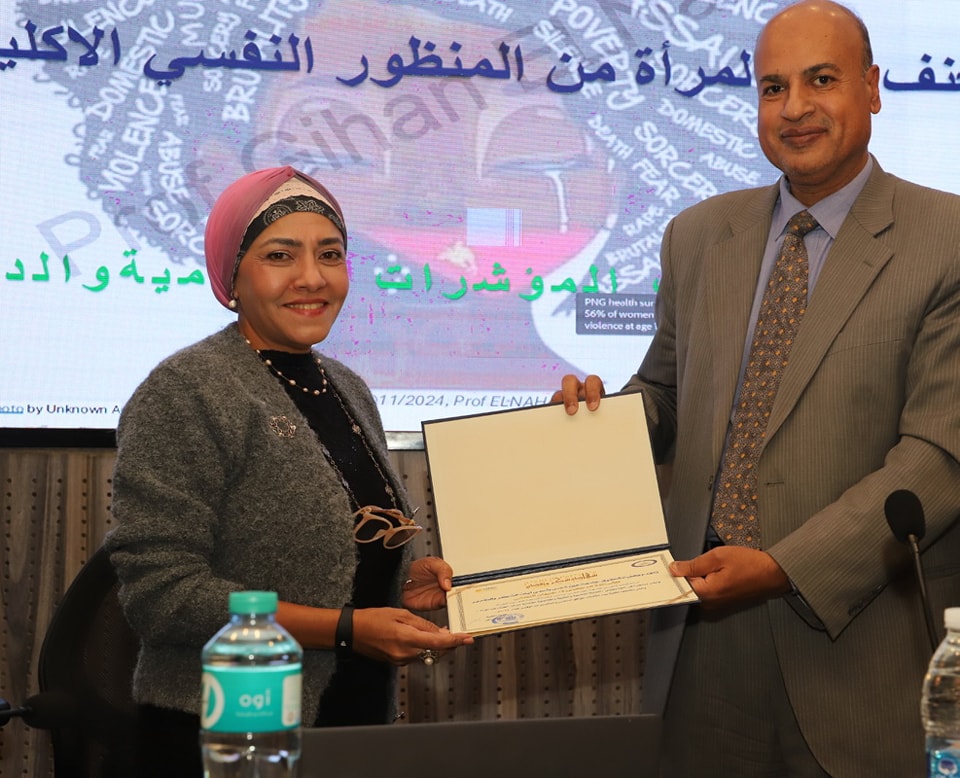 |
||
Prof. Dina Shukry, Professor of Forensic Medicine and Toxicology at Cairo University and Member of the National Council for Women, explained that the role of forensic medicine is not limited to providing evidence, but rather extends to include supporting victims psychologically and legally and contributing to community prevention of violence, and the necessity of providing neutral practical evidence that enhances the credibility of legal cases, and contributes to convicting or acquitting perpetrators and those unjustly accused, which ensures the integrity of justice.
She added the importance of conducting accurate examinations of the victim to document physical injuries, such as bruises, wounds and fractures, photographing the injuries and visually documenting the injuries using photos or X-rays to provide physical evidence before the court, documenting the presence of any biological materials (DNA, body fluids) that may indicate the identity of the aggressor, and determining the cause and time of the injuries, in addition to identifying the tools used, a medical examination to determine the type of tool, collecting samples from the victim and providing chemical or forensic analyses (such as toxicology or DNA analysis) to identify the aggressor or prove the interaction between him and the victim, and finally the specialist prepares and submits detailed reports on the victim's medical condition, including a scientific description of the injuries, their causes and the possibility of their association with the incident of violence, contributing to awareness and prevention and providing statistical and analytical data on patterns of violence against women to help design preventive programs, cooperating and working with criminal investigation authorities to direct the course of the case based on medical evidence and supporting medical and legal authorities to ensure the preservation of the victim's rights and the achievement of justice.
In her speech, Dr. Jihan El Nahhas, Professor of Psychiatry and Director of the Women's Mental Health Unit, described violence as a social phenomenon with profound psychological repercussions that affect the victim on both the emotional and psychological levels. It focuses on understanding the psychological effects resulting from violence and appropriate therapeutic intervention, with the aim of strengthening and recovering the victim and reintegrating her into community life.
She pointed out the forms of violence, including physical violence, psychological and emotional violence, sexual violence, and economic violence.
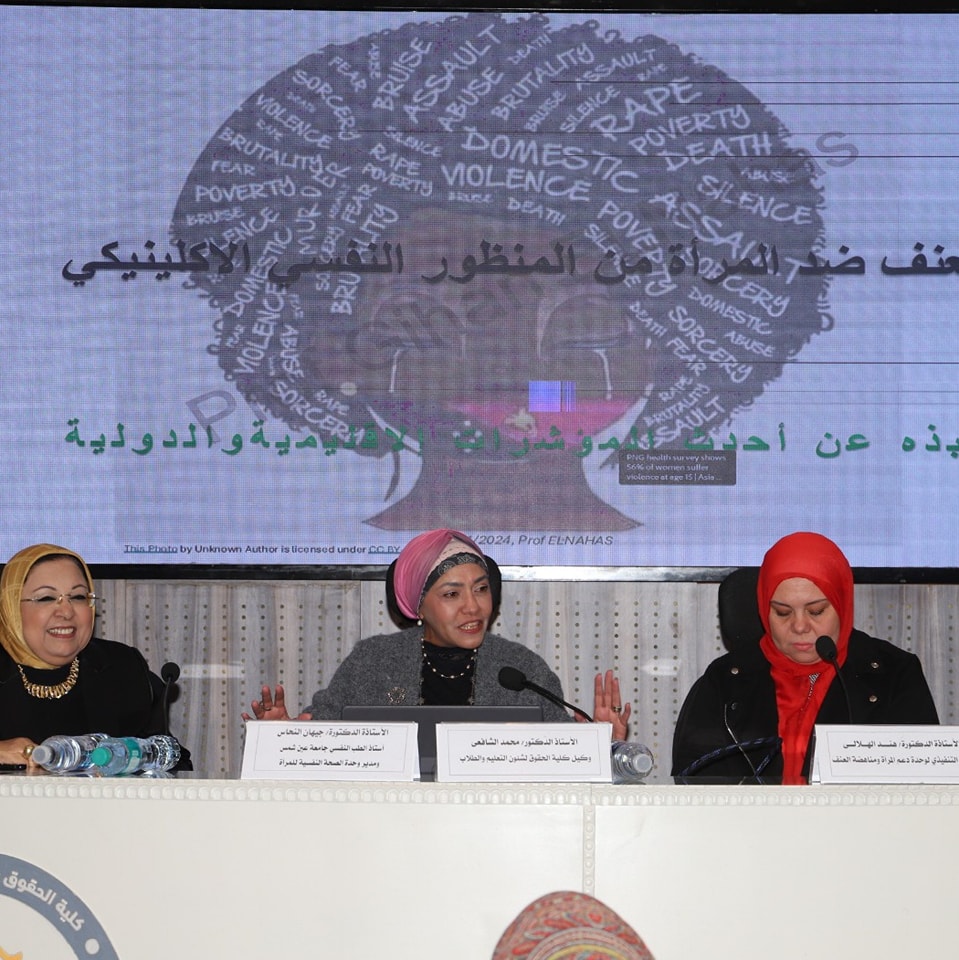 |
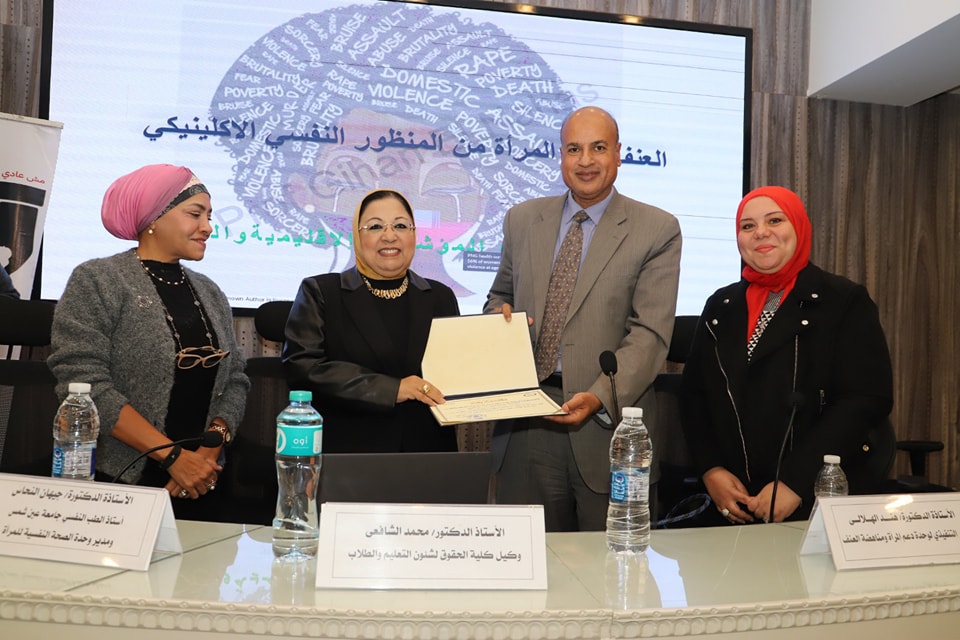 |
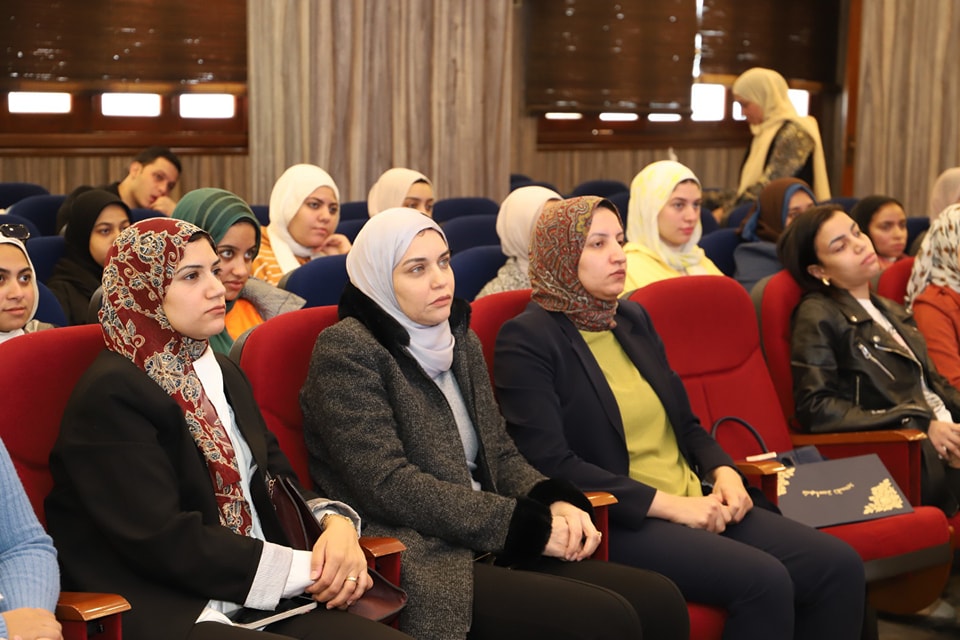 |
||
The psychological effects of violence have been explained, as it leads to short- and long-term psychological disorders, including: post-traumatic stress disorder (PTSD), depression, a constant feeling of sadness, loss of interest in life, and sometimes suicidal thoughts, a feeling of chronic anxiety and constant tension, panic attacks, and a constant expectation of danger, in addition to a disturbance in self-esteem and a feeling of inferiority, loss of self-confidence, a sense of guilt, social isolation and avoidance of social relationships for fear of stigma.
Prof. Hind Al-Hilali, Executive Director of the Women Support and Anti-Violence Unit at Ain Shams University, pointed out the necessity of enhancing cooperation between universities and relevant authorities to support victims of violence, intensifying awareness and preventive activities for students, developing training programs for specialists to deal with issues related to violence against women, and spreading awareness among students and youth inside and outside the university.
Dr. Marwa Mandy, a clinical psychology lecturer, explained the procedures related to dealing with victims of violence from a clinical psychology perspective, showing the importance of specialized psychological intervention to address the psychological and social effects of these cases through initial interviews to understand the nature of the case, identify the circumstances surrounding the violence and the extent of its impact on the victim, and pointed to the scientific methods used to collect data such as guided interviews, psychological questionnaires, diagnostic assessment tools, including psychological support to enhance self-skills to deal with challenges, and provide a safe environment to discuss personal experiences, which contributes to achieving psychological and social recovery for victims and regaining control over their lives and better integration into society.
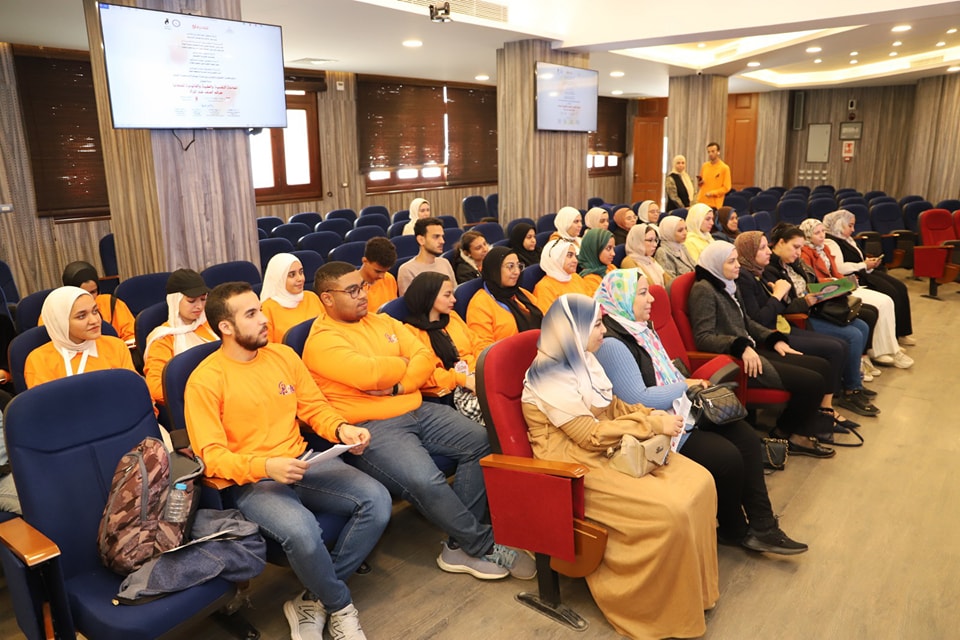 |
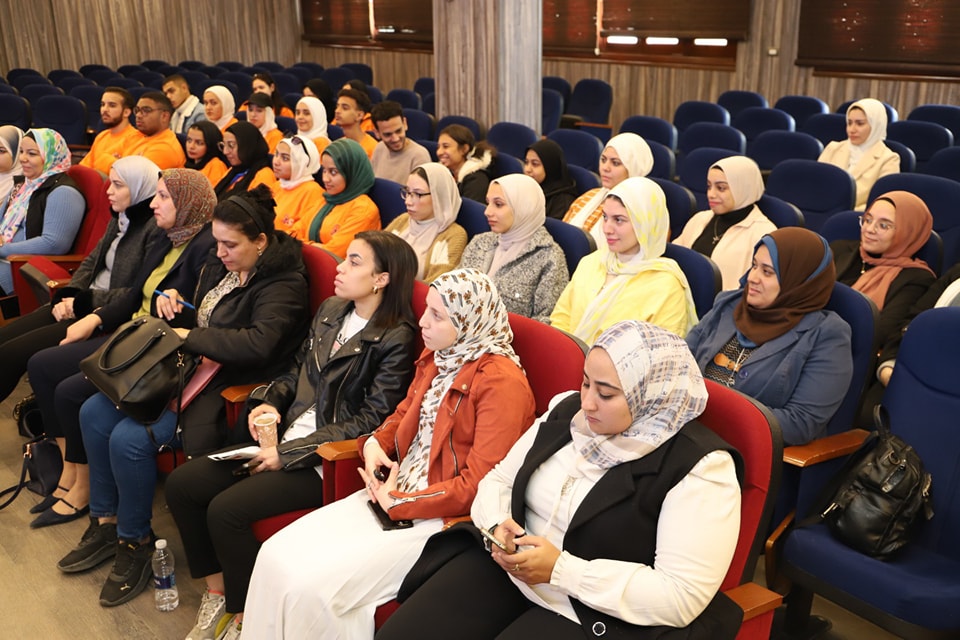 |
|
Dr. Iman El Gamil, a lecturer in criminal law at the Faculty of Law, referred to the efforts made in the field of legislation and laws related to protecting women’s rights, especially with regard to violence directed against them, and discussed the role of the Egyptian constitution in providing legal protection through laws that criminalize violence in all its forms, including electronic violence.
She also explained the methods used to practice cyber violence, such as cyber blackmail, defamation, and privacy violations, and stressed the importance of educating individuals on ways to prevent these crimes. In addition, she addressed the role of the state in establishing laws that guarantee the preservation of personal data and impose strict penalties on cybercrimes targeting women, to ensure justice is achieved and their rights are protected.
She stressed the need for strict legislation to confront cybercrimes and increase legal awareness among individuals to confront these challenges.
At the end, a discussion session was held between guests, lecturers, faculty staff and students about the mechanisms used within the university campus and faculties, complaint methods and services provided, and Prof. Mohamed El Shafei honored the guests and lecturers.


.svg)

